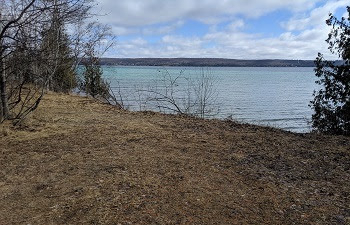Hunting Access Program seeks landowners in northern Lower Peninsula

The Michigan Department of Natural Resources encourages landowners interested in making the most of their property and supporting local hunting traditions to consider enrolling their lands in the DNR’s Hunting Access Program, which provides private-land hunting opportunities for hunters in southern Michigan, parts of the northern Lower Peninsula and the eastern Upper Peninsula.The DNR is looking to expand hunting opportunities on private lands in the northern Lower Peninsula in the following counties: Alcona, Alpena, Antrim, Arenac, Benzie, Charlevoix, Cheboygan, Emmet, Grand Traverse, Iosco, Leelanau, Manistee, Mason, Montmorency, Ogemaw, Oscoda, Otsego, Presque Isle and Wexford.
“You can help promote wildlife population management, support the local economy, reduce wildlife conflicts, improve your land, and get paid to do it,” said DNR Hunting Access Program coordinator Monique Ferris.
Landowners with at least 40 acres are eligible to enroll.
“Providing access to hunting lands that are close to home is critical for supporting Michigan’s strong hunting heritage,” said Ferris. “Our commitment to providing access has more than tripled the number of farms enrolled in HAP the past three years. We now have over 170 farms and nearly 20,000 acres available for public hunting.”
In the northeastern Lower Peninsula, Ferris said the DNR is hoping for increased Hunting Access Program property enrollments as landowners see the benefit HAP provides, particularly in areas where deer population management is needed, such as those areas affected by bovine tuberculosis.
The DNR received a $951,400 grant from the U.S. Department of Agriculture’s Voluntary Public Access and Habitat Incentive Program last year to expand HAP into the northern Lower Peninsula to increase private-land hunting opportunities.
The Voluntary Public Access and Habitat Incentive Program encourages property owners to voluntarily allow outdoor enthusiasts greater access to their privately owned land for hunting.
According to a 2013 study by the National Fish and Wildlife Foundation, outdoor recreation supports 6.1 million direct jobs across the country and $646 billion in spending each year.
“The Hunting Access Program is good for the economy,” said Ferris. “Hunters taking trips to HAP lands contribute $1.7 million annually to Michigan’s economy. The majority of the HAP hunter trips are within 25 miles of the hunter’s home, making HAP lands extremely accessible.”
Michigan’s Hunting Access Program was created in 1977 to increase public hunting opportunities in southern Michigan, where 97 percent of the land base is privately owned. Landowners enrolled in HAP receive an annual payment, up to $25 an acre, for allowing hunters to access their lands. One of the oldest dedicated private-lands, public-access programs in the nation, HAP provides access to quality hunting lands close to urban properties and in agricultural areas. Using funds from the new hunting license package and the new federal grant, the DNR plans to continue expanding the program over the next three years and now offers habitat improvement funds for landowners.
Landowners have the ability to choose which types of hunting are allowed on their lands. Hunting options include:
- All hunting.
- Youth and apprentice hunting only.
- Small game only.
- Deer only.
- Turkey only.
- Elk only.
Landowners may choose more than one option, such as deer and turkey hunting only. Maximum payments will be given for the all hunting or youth and apprentice hunting options.
In order to control the number of hunters using HAP lands at any one time, hunters are required to register to hunt each time they visit the property. The landowner can select either a mandatory registration at their home or a hunter self-registration box, which the DNR will provide and install. The maximum number of hunters allowed on the property is determined by the total acreage, as well as the habitat type. Leases are on a two- to three-year period, with annual payments made each spring.
To ensure landowner and hunter satisfaction, HAP offers landowner liability protection. Public Act 451 of 1994 addresses the concerns some landowners have over sharing access to their land. In addition, HAP lands are patrolled by conservation officers, with an increased focus on patrolling during the busy fall hunting season.
Visit mi.gov/hap to learn more about the program and to see a current list of private lands available for hunting in Michigan. The HAP web page includes details about enrolled properties, including types of hunting allowed and aerial photos of the properties.
Contact: Monique Ferris, 517-284-4741




